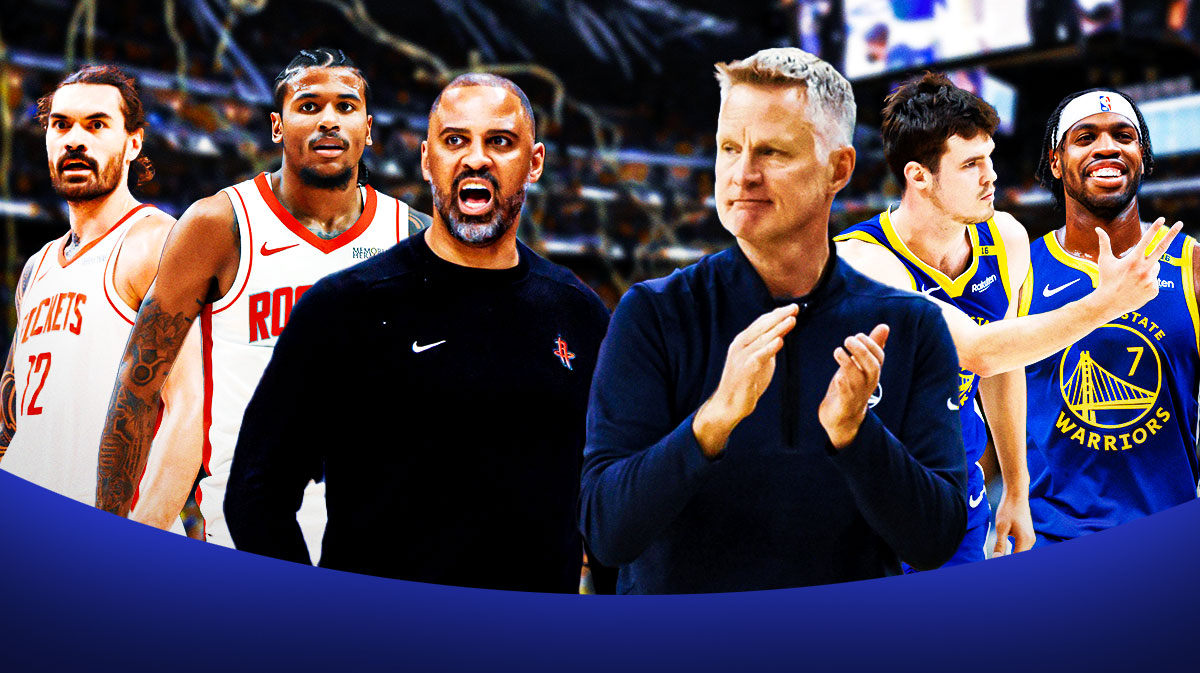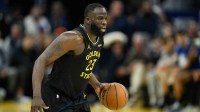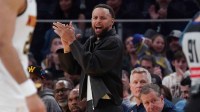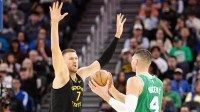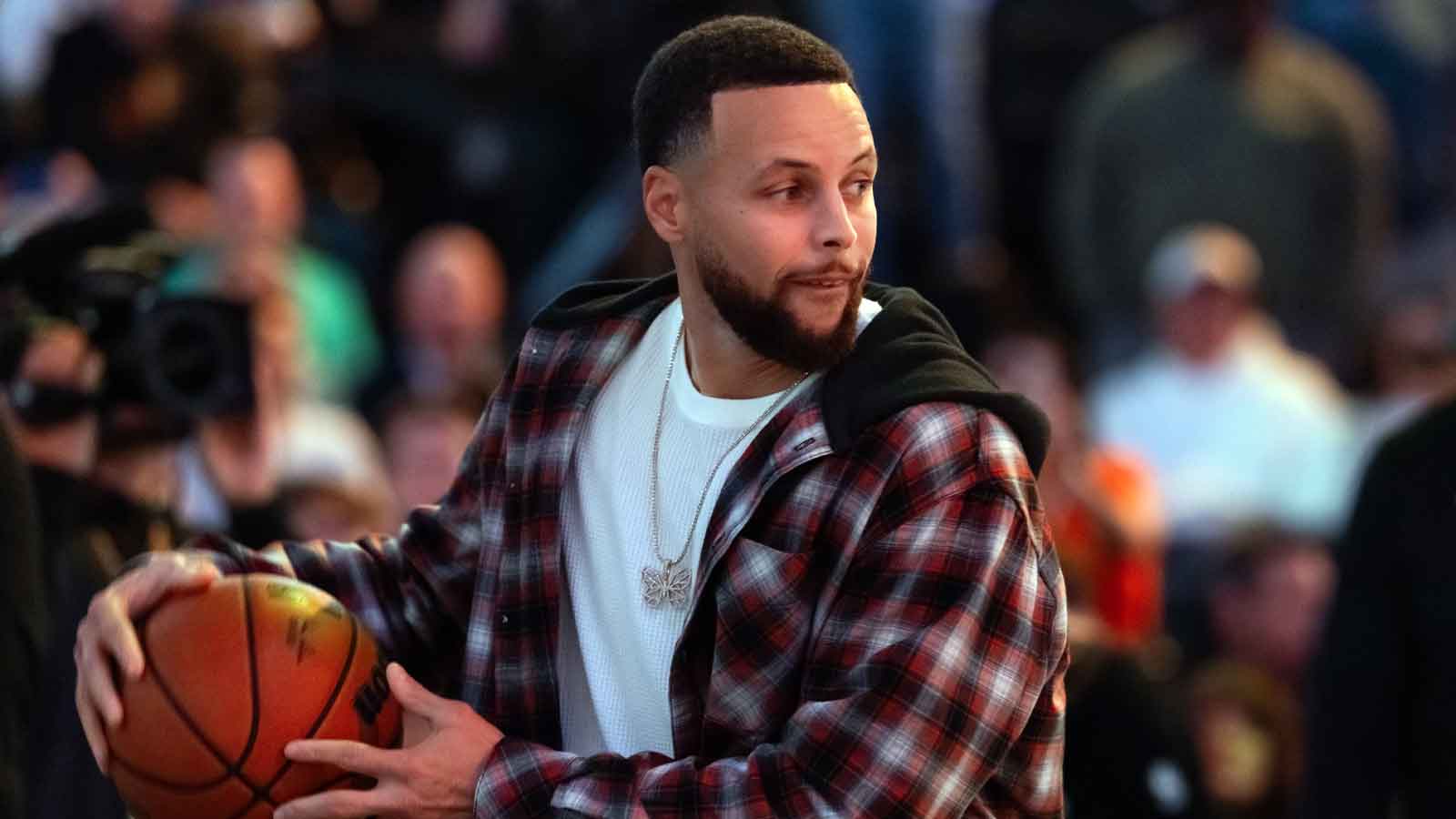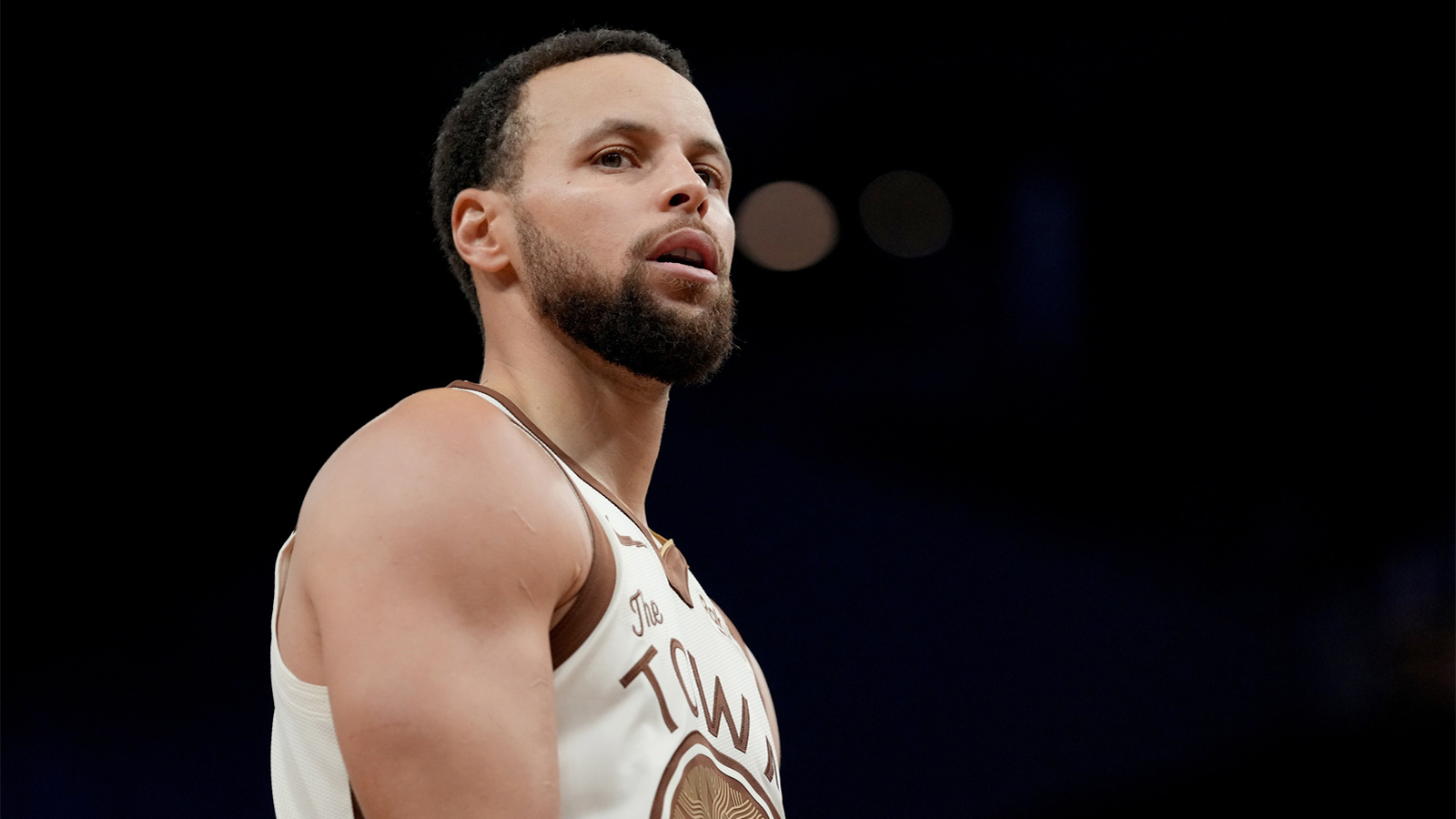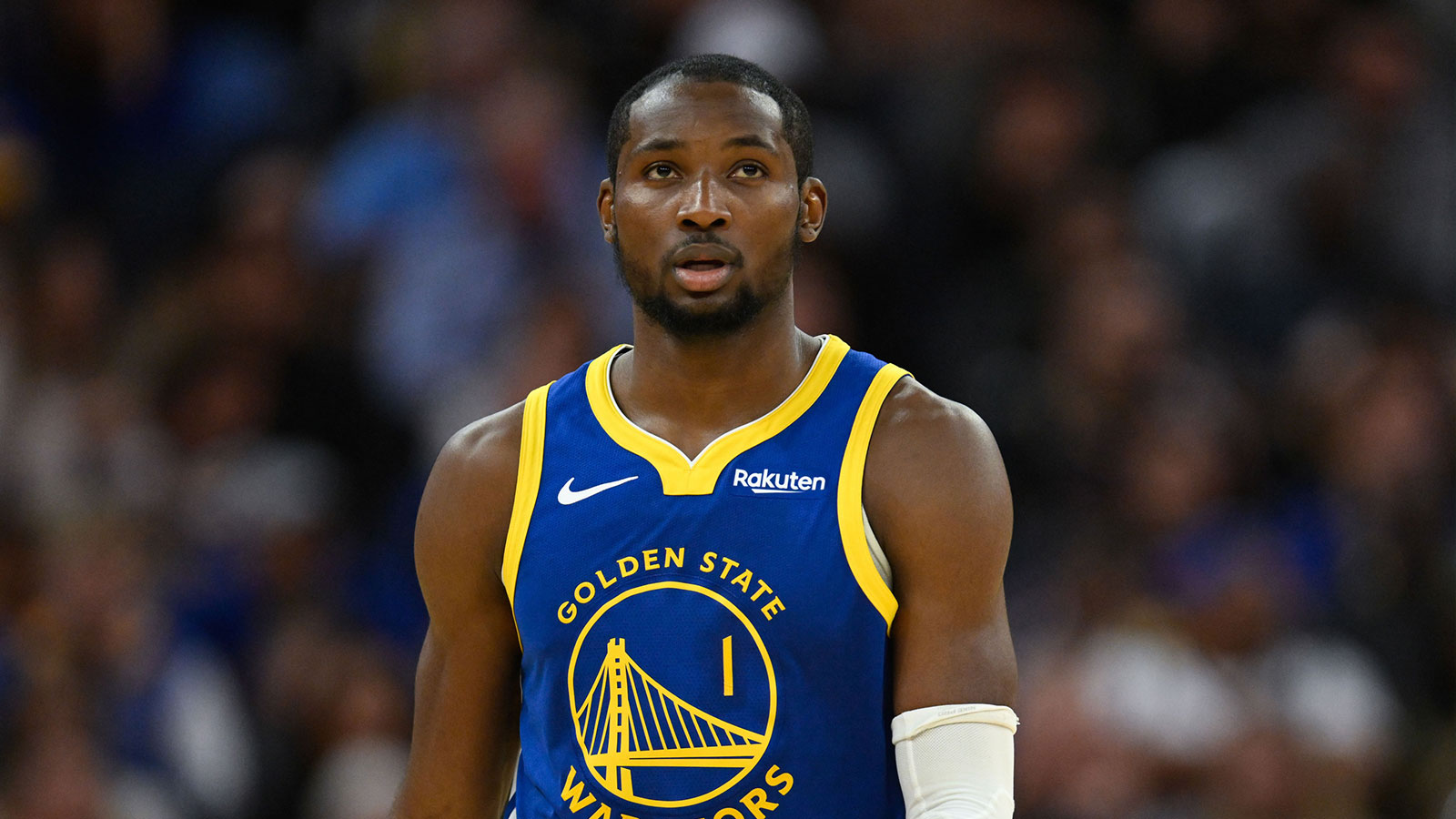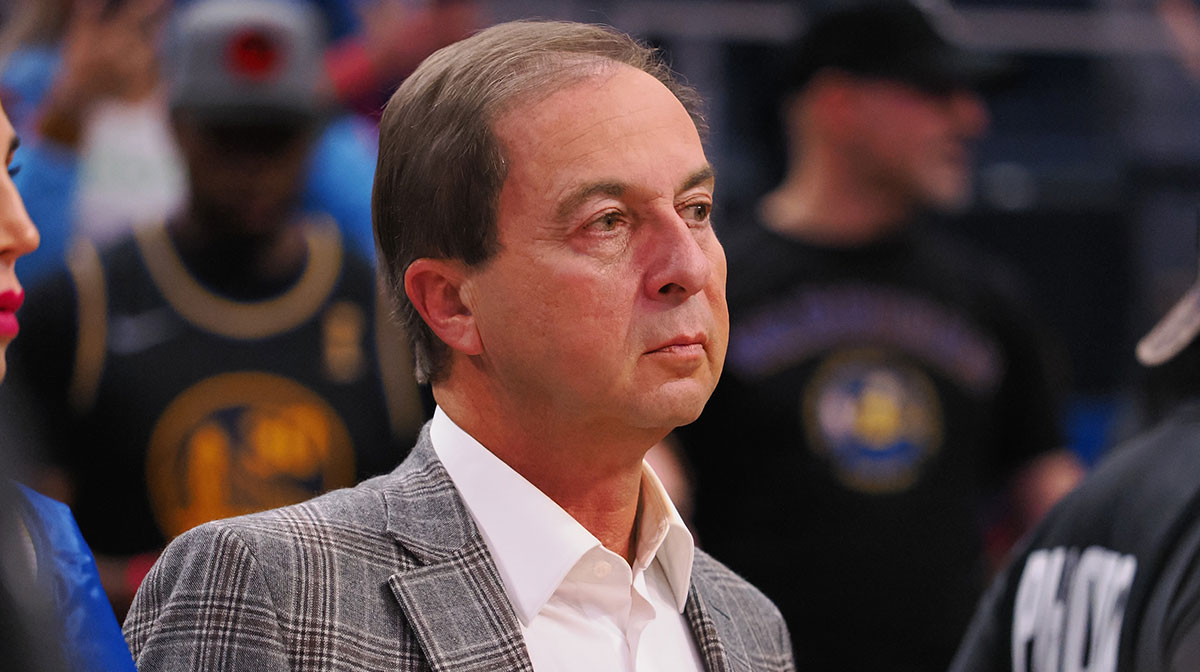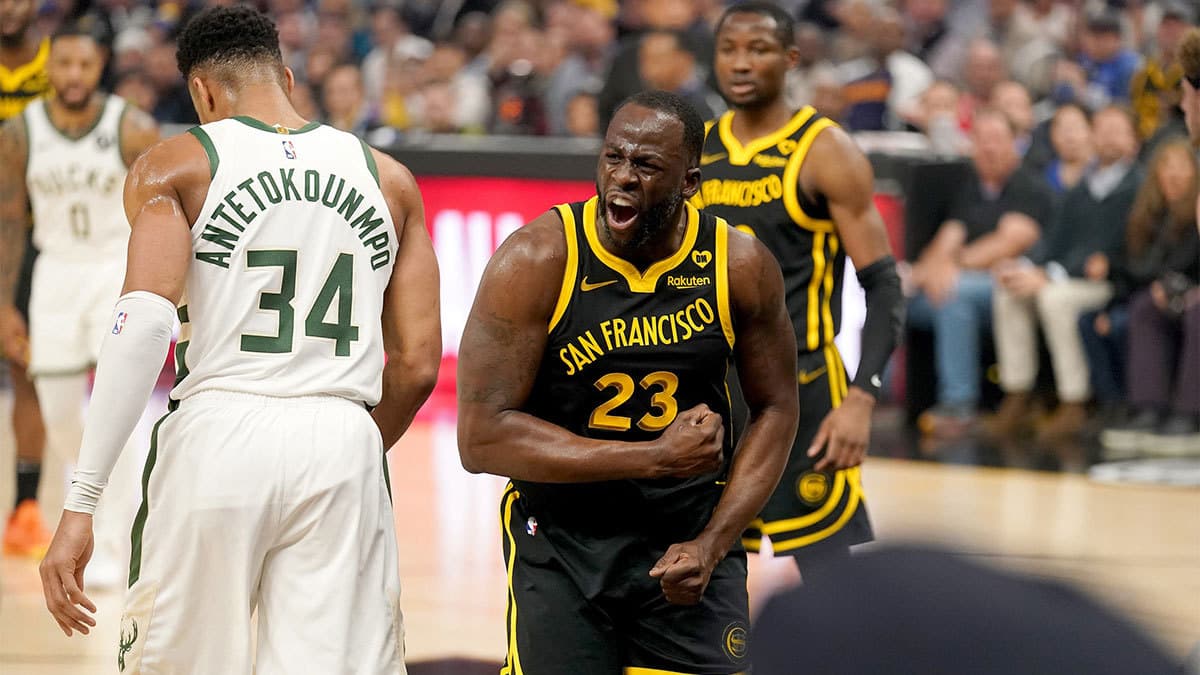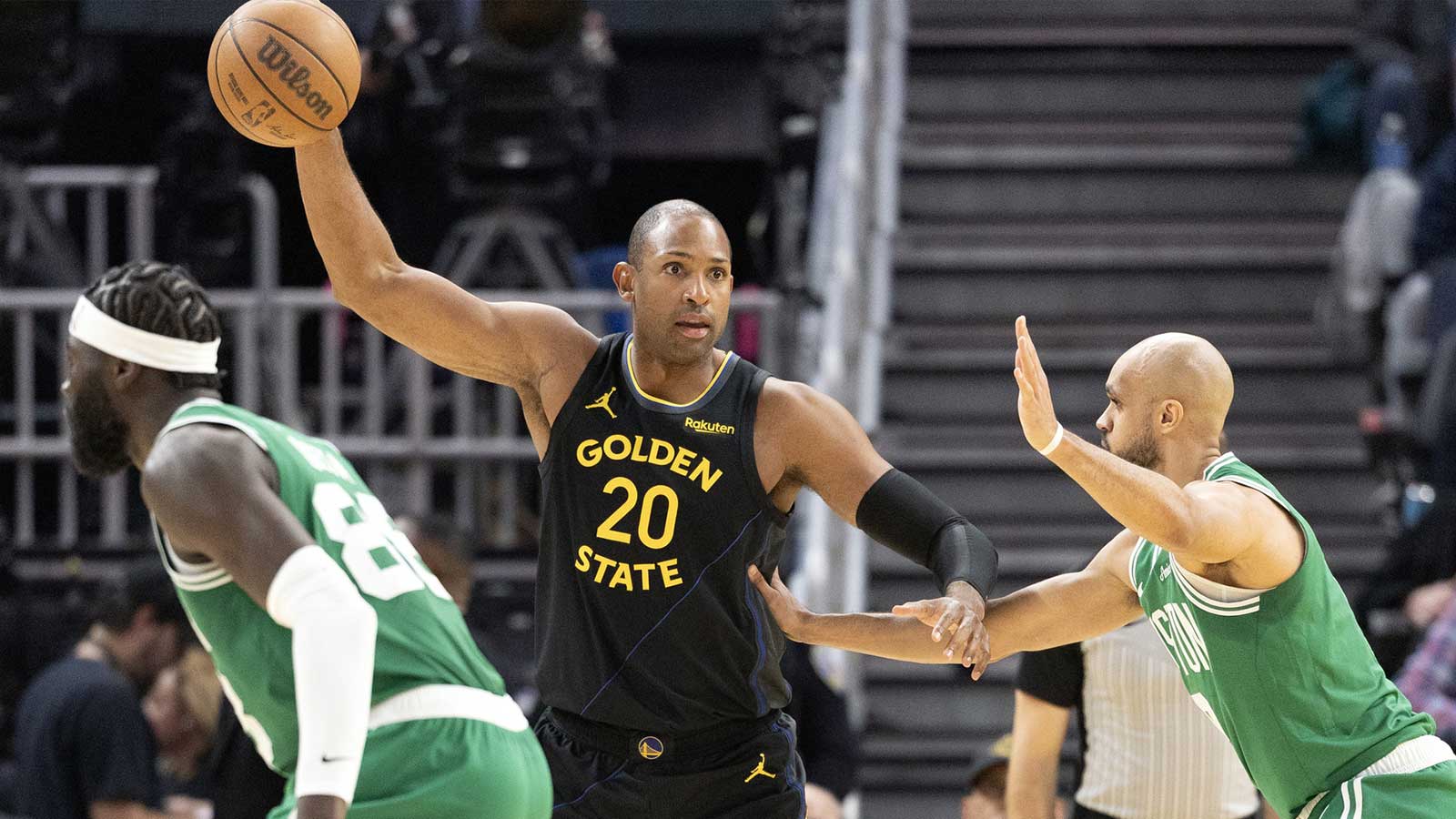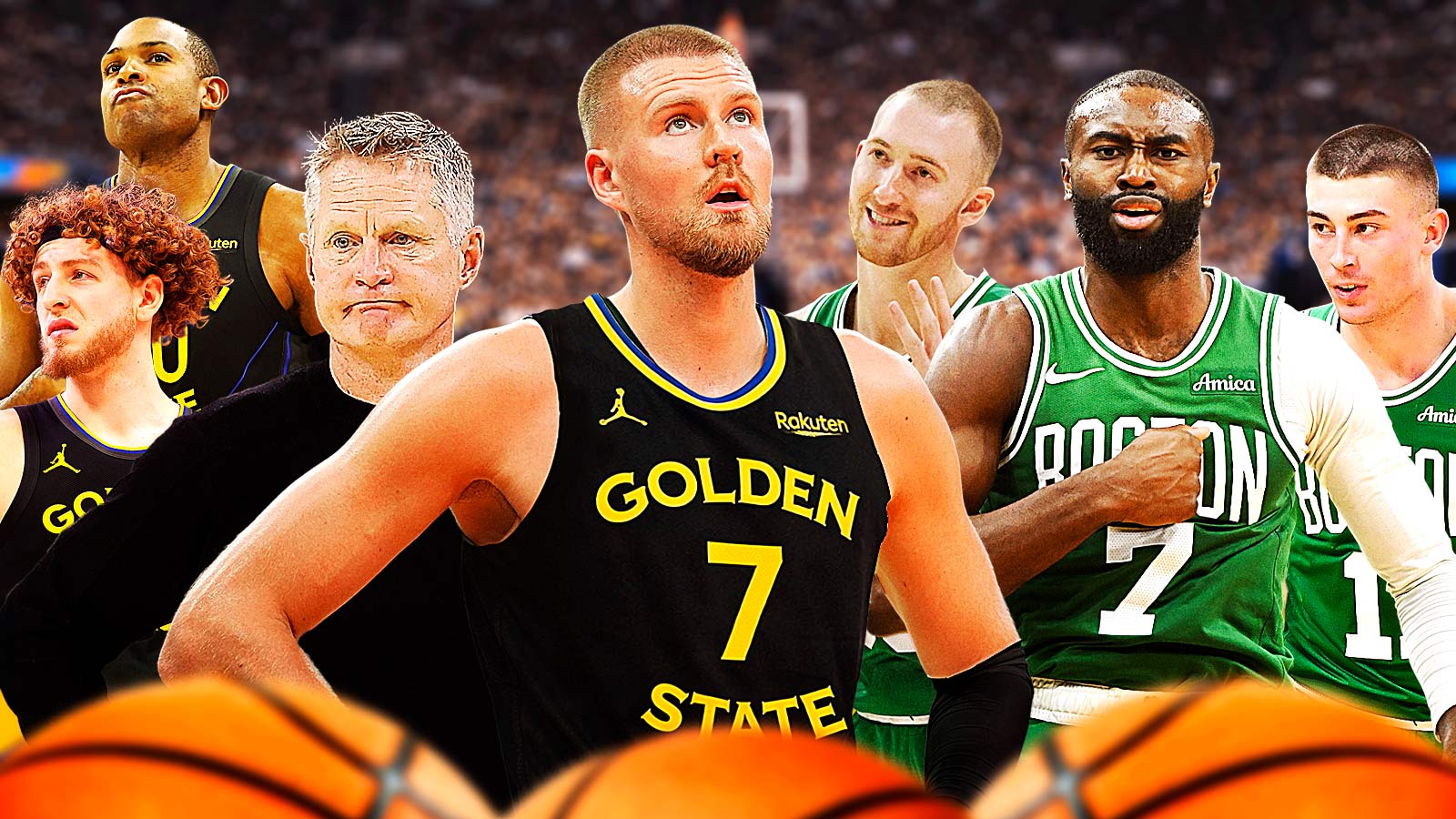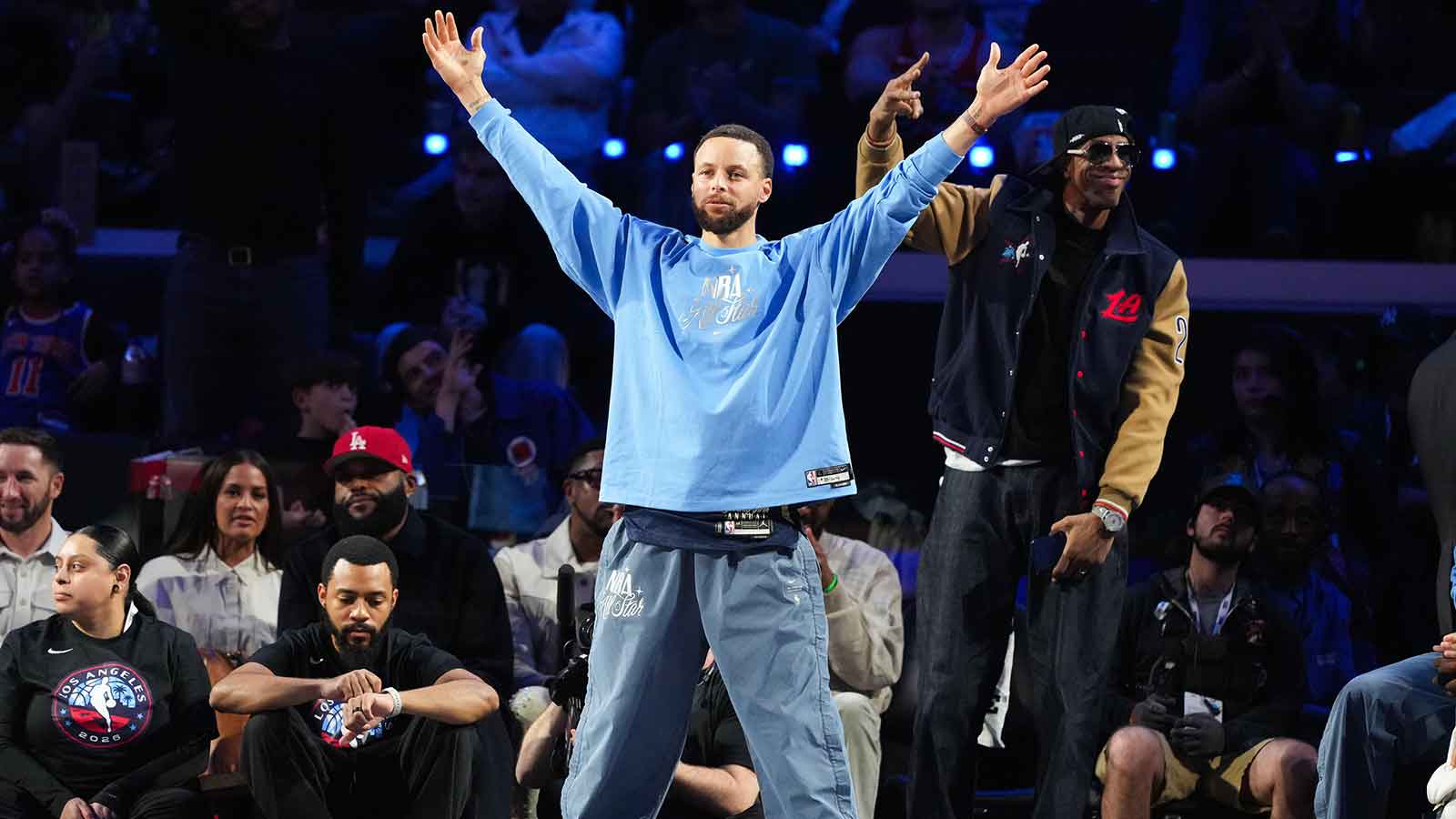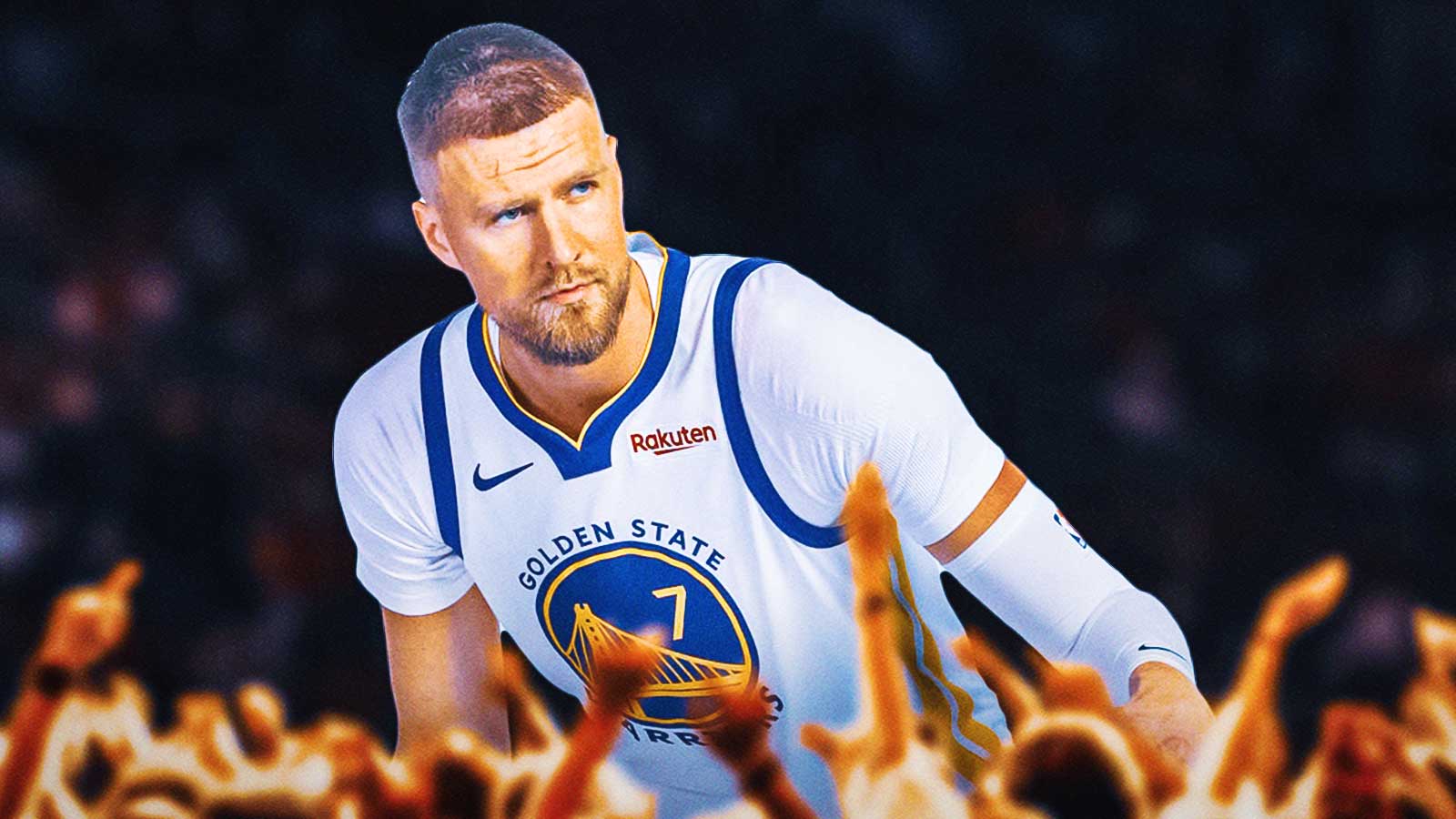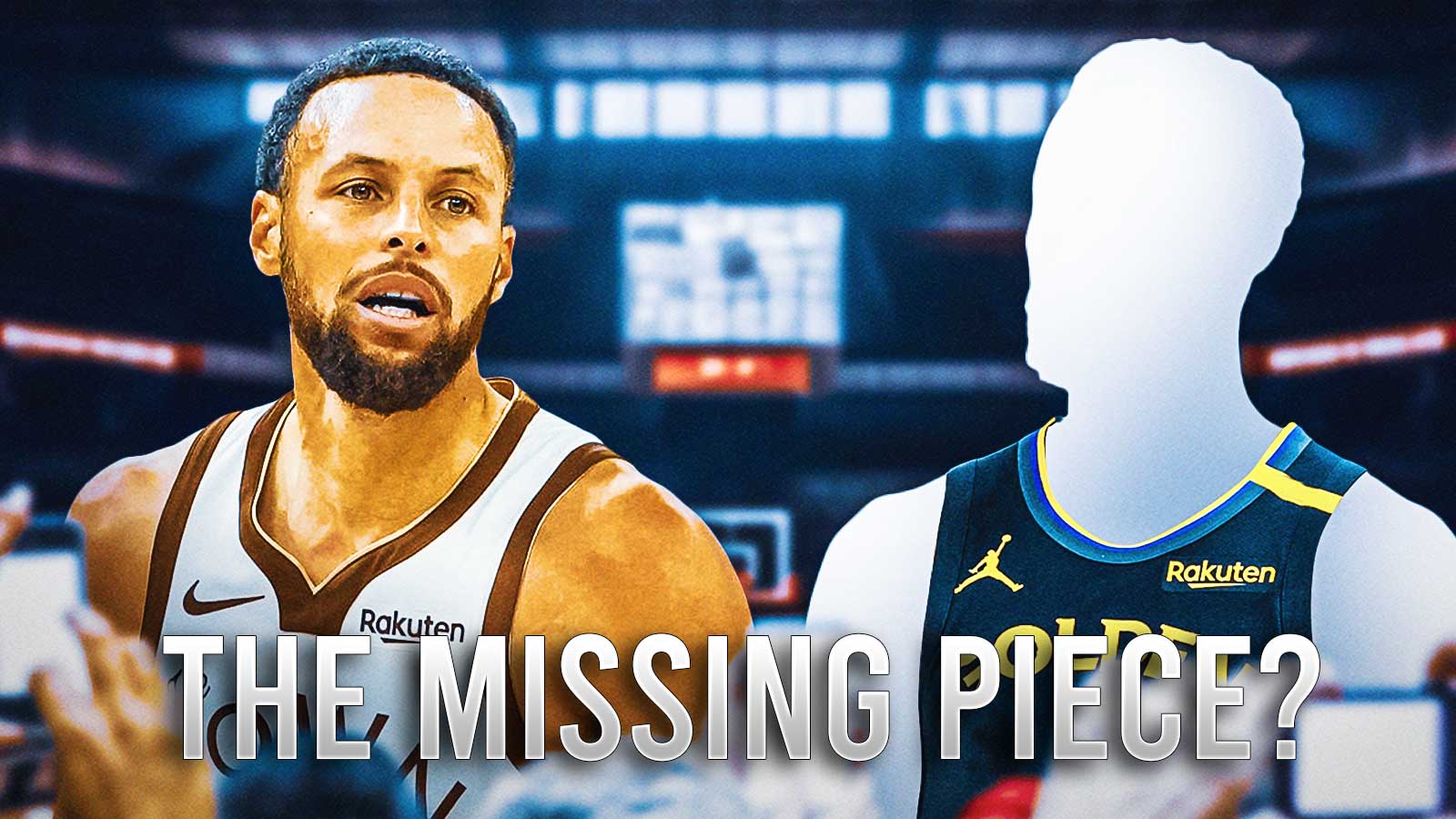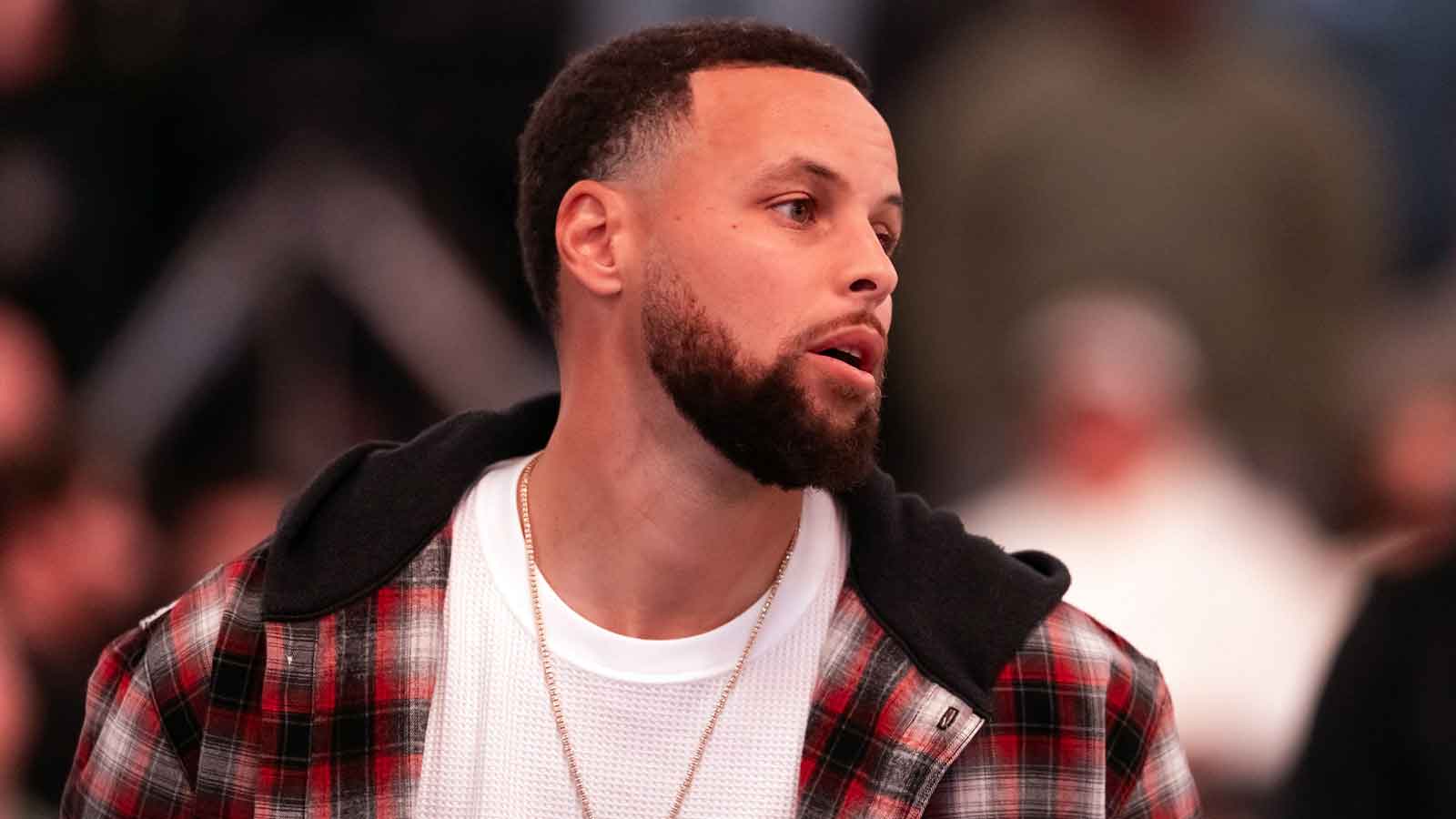Don't be fooled by Steve Kerr's well-worn blend of affability and self-deprecation. Despite suggesting otherwise on the national broadcast, hindsight reveals the Golden State Warriors coach knew exactly how to best manage Draymond Green's foul trouble late in his team's pivotal Game 4 battle with the Houston Rockets in the first round of the NBA Playoffs on Monday.
“I don't know. We'll see,” a smiling Kerr quipped when asked by TNT's Allie LaForce what the Warriors' plan was for the Defensive Player of the Year finalist in the fourth quarter. “I'm gonna go talk to my coaches, so if you'll excuse me.”
Maybe the Dubs really did stumble upon their game-changing workaround of Green's five early fouls in real time. The overwhelming success of those decisions certainly makes it easy to assume differently.
Nevertheless, Kerr's pitch-perfect handling of another fraught postseason development on Monday paved the way for the Warriors' nail-biting 109-106 victory at Chase Center. It's hardly the only time Kerr has out-dueled Rockets counterpart Ime Udoka on Golden State's path to a decisive 3-1 lead over Houston either.
Warriors protected Draymond Green with hack-a-Steven Adams
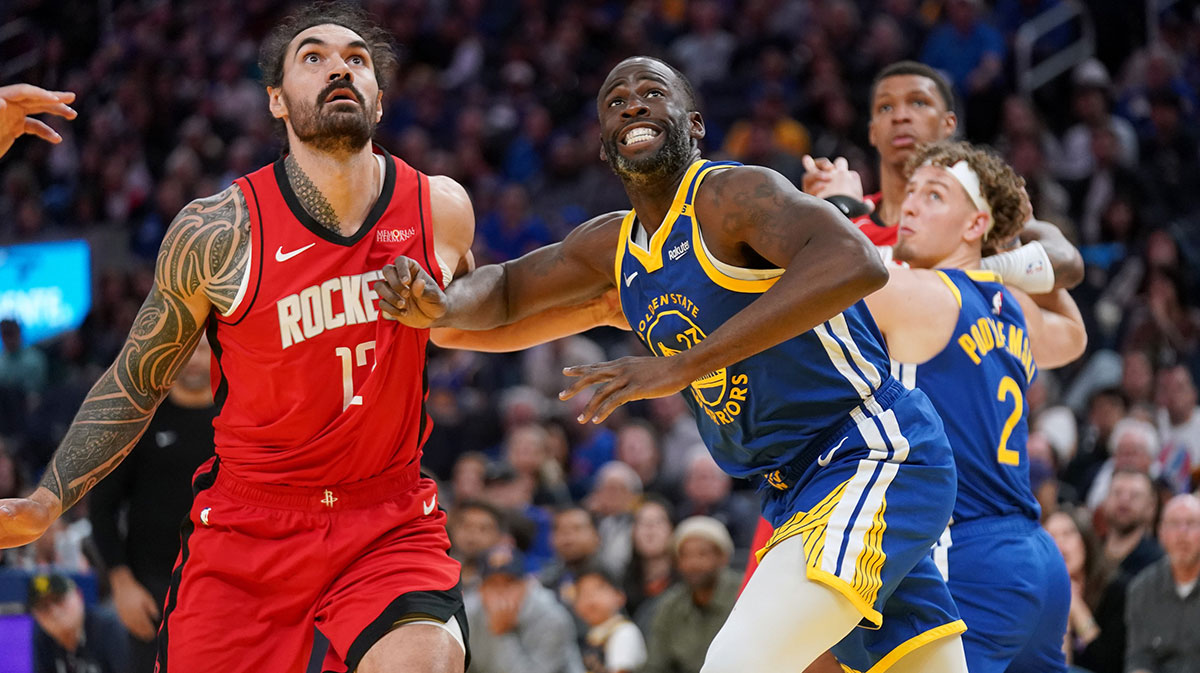
Steven Adams, the league's most unstoppable offensive rebounder, has lived up to that billing against the downsized Warriors. The veteran big man finished a team-best +16 in Game 4, grabbing five offensive boards all by himself while leading the ultra-physical Rockets to a laughable 60% offensive rebound rate during his 26 minutes of action.
Houston's 2-3 zone defense largely left Golden State in the mud offensively, too, keeping Adams near the rim to rack up four blocks.
The Rockets opened Monday's fourth quarter with their vaunted double-big lineup, pairing Adams alongside franchise cornerstone Alperen Sengun up front. Green, on the other hand, began the final stanza watching from the sidelines, stuck to the pine with five fouls until re-entering with 7:51 remaining.
Golden State remained in its malleable zone defense upon Green getting back on the floor, a means of protecting him from fouling out while guarding Sengun one-on-one. But all zone defenses risk getting pounded on the glass, and it surely came as no surprise to Kerr and his coaching staff as Adams continued wreaking havoc in the paint while fighting for his teammates' misses.
A two-point lead to tip off the fourth quarter became a one-point deficit entering crunch-time with the Warriors utterly helpless to mute Adams' impact amid the normal run of play. Green had also headed back to the bench some 30 seconds earlier, replaced by Kevon Looney—a seemingly odd substitution until the gambit that came next.
Looney intentionally fouled Adams twice in succession just under the 4:30 mark of the final period, putting Houston in the bonus. Instead of watching Golden State send Adams—a career 53.3% free-throw shooter—to the line again and again when his team needed points most, Udoka blinked, bringing Jabari Smith Jr. in for Adams with 4:25 left in the game.
Green came back for Looney at exactly the same time, once again insulated from a sixth foul by serving as the back-line defender in the Dubs' zone.
After falling behind by four on a subsequent triple from Fred VanVleet, Golden State unleashed a 7-0 run as Houston's halfcourt offense faltered. By the time Adams got back in with just under two minutes left, when intentional fouls yield free throws and the ball, the Warriors were up 104-101. Houston tied the score shortly thereafter, but the damage was already done.
Adams' interior dominance served as the linchpin of the Rockets' first-quarter climb from a double-digit hole as well as their four-point lead midway through the fourth quarter. He was arguably the most impactful player on the floor Monday night. Kerr realized as much, betting that Udoka wouldn't be comfortable “wasting” late-game offensive possessions on Adams free throws.
“They got us into the bonus by taking the fouls and getting them out and bringing them back in when it's under two minutes,” Udoka said after the game of substituting for Adams in the clutch. “So they can't be as aggressive defensively. They built up the fouls, and Alperen was rolling. Some guys were playing well, Amen obviously there.
“So wanted to go with that lineup,” he continued, “take Steven out and get him back when it's under two minutes.”
Udoka's reactive strategy was sound enough. Kerr's proactive one was simply better, and it ultimately made a massive difference in a game that could've gone either way.
Starting Buddy Hield gave Alperen Sengun nowhere to hide

Golden State raced out to a double-digit lead over Houston in Game 4 behind suffocating, disruptive defense from an unlikely source. Kerr certainly didn't start Buddy Hield on Monday due to his merits on that side of the ball.
Yet less than four minutes into the first quarter, Hield took Jalen Green's cookies on consecutive possessions, his second steal and ensuing finish putting the Dubs up 13-2 and forcing a Rockets timeout.
Green never recovered from that humiliating start, crumbling on both ends en route to eight points and five turnovers on 3-of-8 shooting in 24 minutes.
Hield, meanwhile, rewarded Kerr's confidence with 15 points, four rebounds, three assists, and two steals across a series-high 30 minutes of action, providing the Dubs some much-needed juice offensively with Stephen Curry quiet and Jimmy Butler's mobility limited by injury.
The veteran sharpshooter gave Golden State its first crunch-time advantage by sprinting the floor for this side-step three in transition, too.
Note who picks up Hield as the ball changes halves: Sengun, who doesn't have much experience tracking movement shooters beyond the arc. That problematic matchup dynamic played out again and again in Game 4 with Kerr's decision to prioritize Hield in the rotation causing Houston's star big man headache after headache defensively.
Moses Moody has fared well since the Warriors brought in Butler, emerging as a solid primary defender of opposing ball-handlers and playing within the flow of the offense.
But Moody has struggled to find the range on his jumper of late, making him an even more ideal hiding spot for Sengun defensively while the switch-heavy Rockets task superior one-on-one defenders with matchups elsewhere.
Missing multiple open threes presents enough of an issue for any offense. Moody's struggles to knock down good looks from the perimeter and compensate by making plays off the dribble only exacerbated it, allowing Sengun to utilize late close-outs to the arc and cramp the strong side of the floor defensively. Those options aren't available with Hield in Moody's place.
When Sengun wasn't left trying to keep Hield in check from beyond the arc, he had to chase Brandin Podziemski around the floor—a winning proposition for the Dubs even if the lefty's hand wasn't so hot from deep.
Watch Sengun fail to keep up with a relocating Podziemski on this early second-half possession, resulting in an open three.
Including Sengun in on- and off-ball screening actions was always going to be the Warriors' most reliable mode of halfcourt offense in this series. Ensuring he guards a more consistent, versatile offensive threat than Moody increased Sengun's exploitability, affording Golden State a ready-made target to attack and further bend Houston's defense from there.
“Unit was great. Great start to the first quarter, great start to the third quarter,” Kerr said of his updated starting five that included Hield. “I think that unit gave us more speed, more shooting, and it forced some matchups for them to make the game a little more difficult.”
One easily overlooked aspect of Golden State giving Hield more burn? How deploying zone defense for longer stretches insulated his deficiencies as an on-ball defender, just like it did Green's foul trouble.
Kerr's trust in Quentin Post over Jonathan Kuminga paid off
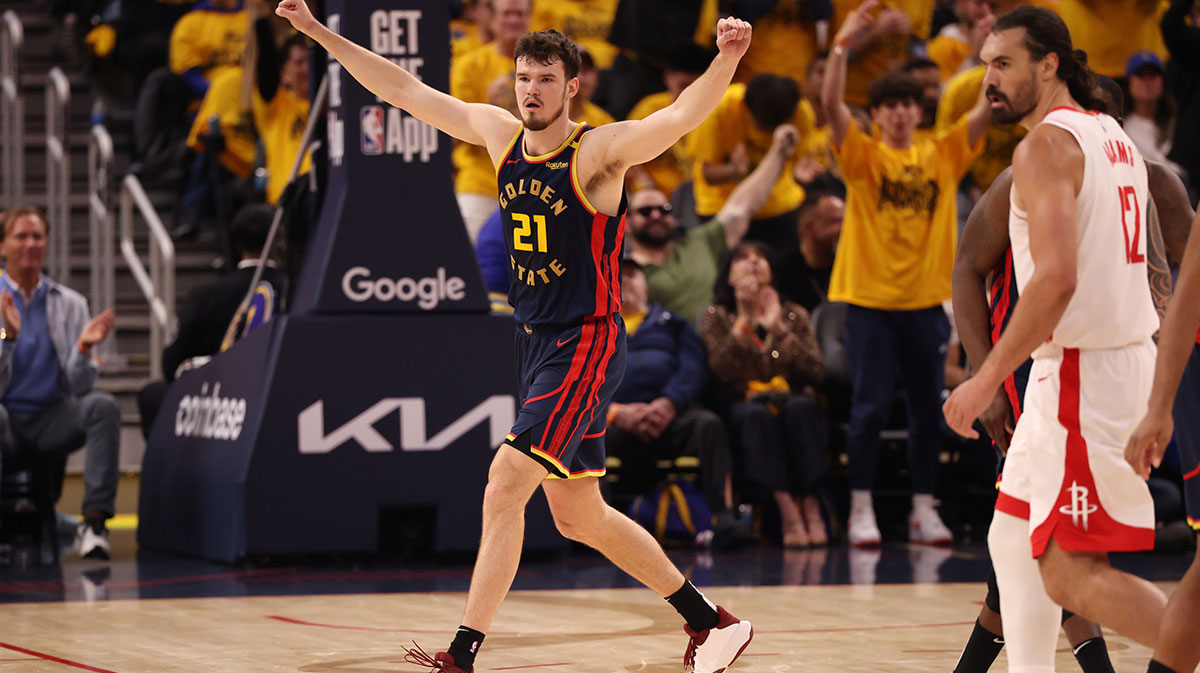
Butler's Game 2 injury set the stage for Jonathan Kuminga to re-emerge as a cog in the Warriors' underdog quest for a title. He was on the floor for tipoff of Game 3, an ostensibly sizable part of Golden State's plans as this series shifted to the Bay Area tied 1-1 with the status of Curry's co-star in doubt.
Kuminga ended up playing only 17 minutes on Saturday, though, then didn't get off the bench at all in Game 4. Why?
Though the embattled fourth-year forward didn't exactly make a strong case to wrestle back a rotation role while Butler was sidelined by a deep glute contusion, the choice to keep Kuminga marginalized had at least as much to do with Quinten Post's ongoing success in his postseason debut.
The rookie second-rounder started next to Kuminga in Game 3 with Butler out, never finding his footing offensively while finishing with seven points on as many shots and clanking all three of his triples.
Kerr stuck with Post anyway, playing the pride of the Netherlands for 27 minutes—tying a career-high—as he made up for an off shooting night with eye-opening individual defense and persistent fight on the glass.
Most coaches wouldn't have the audacity to roll with Post over a player with Kuminga's pedigree and organizational equity. Fewer still would go that route in the playoffs knowing Post would be relegated to guarding an athlete the caliber of Amen Thompson.
The Dubs won their first championship a decade ago after Kerr stashed Andrew Bogut on the Memphis Grizzlies' Tony Allen in the Western Conference Semifinals, a matchup ploy that's since become commonplace league-wide.
Post isn't anywhere near Bogut's class as a defender, and Thompson—even in this early stage of growth—is far more dynamic with the ball than Allen ever was.
Kerr toggled the matchups that way regardless in Game 3, a big reason why Houston's halfcourt offense never found a rhythm and a shaken Thompson labored to 5-of-16 shooting, bothered by Post's length.
Post didn't start on Monday with Butler available, but his 19 minutes' worth of court time were more than any other Golden State reserve. He also spent less time matching up with Thompson due to Golden State's reliance on zone defense and the Rockets' more pointed efforts to get their rising star playmaker guarded by smalls.
Rest assured that Post made his presence felt anyway, stretching the floor offensively with 13 points on 4-of-11 overall and 2-of-7 from deep.
Could Kuminga have duplicated that production? Sure. But for a team in dire need of spot-up shooters and sound decision-makers around Curry, Butler, and Green plus additional size and strength on the other end, Kerr's decision to once again play Post over Kuminga loomed large.
“It's a chess match,” Kerr said of this series during Game 4.
And the more the coaches move the pieces, the closer the Warriors are getting to checkmate.

